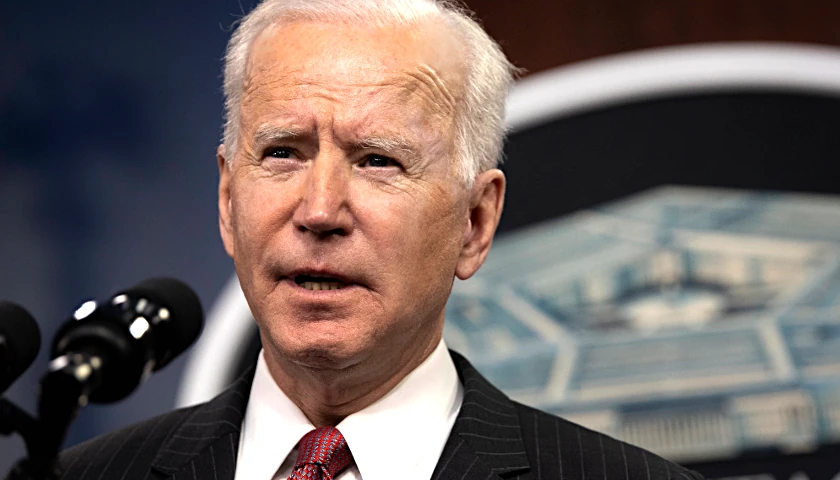The Democrat seeking to replace the retiring Sen. Bob Corker (R) is pushing the Tennessee Valley Authority (TVA) as a solution to solve the rural broadband gap. But, history shows that kind of big-government method will only take a bite out of taxpayers.
Bredesen, the former governor of the Volunteer State, said recently he wants to amend the federal TVA Act to permit that government-owned power providers offer broadband access to rural areas of Tennessee.
He said, “TVA is perfect to fix this digital divide,” noting the TVA board’s 2017 plan to spend $300 million to expand its network fiber capacity, which should improve the reliability of its transmission system.
“I want our country to get back to the days when it did bold projects and not just fool around the edges with grants, tax credits, and demonstration projects,” Bredesen said.
TVA seems more pragmatic and less eager about the idea than Bredesen. TVA spokesman Jim Hopson told the Times Free Press the focus of the expansion is to ensure reliable delivery to power in seven states, and that TVA “is not intending to become a broadband supplier.”
While the Tennessee Broadband Accessibility Act signed by Republican Gov. Bill Haslam has the flaw of allowing electric cooperatives to provide broadband service – they have various reduced tax and taxpayer-funded advantages over private providers – it also smartly offers $15 million in tax credits (as well as $30 million in grants) to private providers to upgrade their services.
Mixing a utility like TVA and broadband is not popular with lawmakers. U.S. Rep. Marsha Blackburn, the top Republican candidate to take Corker’s seat, said that “broadband as a utility is a big government solution that will raise taxes.”
Tennessee has an excellent example of unnecessary government broadband largess. Take the case of Chattanooga, which Motherboard called “The City That Was Saved by the Internet.” The outlet claimed in a story last year that Chattanooga’s government-owned Electric Power Board would have stretched its 10-gigabit-capable fiber to the surrounding rural areas at no cost to taxpayers, using cash on hand or private loans to pay for the expansion. They conveniently neglect to mention ongoing personnel and maintenance costs.
The outlet complained about Tennessee’s Broadband Accessibility Act, which prevents municipal broadband networks like EPB from expanding beyond their existing coverage zones within city limits.
“EPB is profitable and doesn’t rely on taxpayer money,” Jason Koebler of Motherboard wrote.
That line from the Motherboard piece conveniently forgets that EPB’s broadband division was almost entirely built on the backs of taxpayers and electric ratepayers.
EPB’s power customers footed a $160 million loan for a “smart grid” to better enable the utility to service power needs during outages and also provide some of the country’s faster internet speeds. Taxpayers nationwide got to chip in $111 million thanks to President Obama’s stimulus program.
What taxpayers and ratepayers got for those hundreds of millions of dollars is a 10-gig service that costs $300 a month (that almost no one uses) and a popular $70-a-month gig service that Motherboard claims is the cheapest in America but in reality is a standard rate in many markets charged by private providers.
Residents also got a massive government bully that chased smaller providers away from the Chattanooga area, who couldn’t face the prospect of competing against an entity with virtually unlimited taxpayer resources at its disposal.
And the idea of entities like EPB growing beyond their current coverage zones has stymied rural broadband growth. Some of the state’s smaller internet providers have confirmed this problem.
David Snyder, CEO of Dayton-based VOLstate, which has been in the internet business for two decades, slowed his company’s growth efforts in Dayton and nearby Cleveland due to the chatter about EPB being allowed to expand.
“I’m competing with city hall,” Snyder told the Times Free Press. “I have to pay them taxes, then they turn around and compete against me.”
The same story rings true elsewhere. William Haines, owner and CEO of America Internet & Communications, now based in Cleveland, Tennessee, told Watchdog.org last year that his company was previously located in Chattanooga until the taxpayer-subsidized EPB “ran us out.”
Haines’ internet business model is focused on wireless services – he beams signals from 40 towers in east Tennessee to customers with receivers on their rooftops. Those customers get download speeds of between 10-40 megabits per second, depending on how close their homes are to the nearest tower.
Those speeds may not be as sexy as gigabit service, but consider that until 2015, the FCC considered speeds of 10 mbps and higher as broadband and a speed of 6 mbps is more than adequate to stream Netflix.
Haines is looking to expand into Georgia rather than further into Tennessee given his home state’s political climate around broadband. It’s business models like that of America Internet & Communications that could be the solution to the rural broadband divide, given its ability to beam signals through the air rather than use fiber that is both expensive to lay and will eventually grow obsolete.
Rather than try to put the impetus of broadband expansion on behemoths like TVA, lawmakers – and potential lawmakers like Bredesen – should focus on reducing regulations and costs for private providers who have the know-how to get the job done.
– – –
Johnny Kampis is investigative reporter for the Taxpayers Protection Alliance Foundation.





“Rather than try to put the impetus of broadband expansion on behemoths like TVA, lawmakers – and potential lawmakers like Bredesen – should focus on reducing regulations and costs for private providers who have the know-how to get the job done.”
“Rather than try to put the impetus of broadband expansion on behemoths like TVA, lawmakers – and potential lawmakers like Bredesen – should focus on reducing regulations and costs for private providers who have the know-how to get the job done.” Remember, folks, govenment in America as envisioned by Our Glorious Founders is NOT 1. a bank, 2. Insurance company 3. a chamber of commerce. Government is the Problem, NOT the Solution. For God & Country
Yeah, our electric Coop is pushing to carry broadband to the far corners of Tennessee at no telling what expense. That is ridiculous. Private enterprise is the solution.